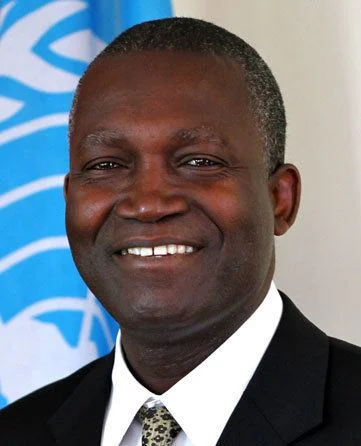By Bunmi Makinwa
The largely deserted streets of cities in Lagos may give the impression that the population is decreasing. The same applies to Abuja, the Nigerian capital.
Wrong!
According to available data, there is to date, no part of the country where the population is decreasing, Current projections indicate that Nigeria’s population currently ranked as the seventh most populous country in the world with approximately 230 million people in 2024, will increase to 377 million by 2050, making it the third most populous country.
Due to the prevailing hardship, a sizeable portion of the population stays indoors, primarily idle. In Abuja, Lagos and other state capitals in urban areas, micro, small and medium-scale enterprises, which serve as the economic drivers for the population, have either decreased in number or halted their operations.
Many Nigerians are unable to move outside their homes to source their means of livelihood. In simpler terms, life has become so expensive that people stay home to reduce costs and avoid expenses. Prices are high, sales are lower. Income and the capacity to earn have been eroded.
Nigeria recorded a trade balance of 6.5 trillion Naira in the second quarter of 2024. Exports accounted for 60.89% of total external trade. Imports are declining.
Dependence on oil as the main source of revenue and exports has shifted positively. In the third quarter of 2024, the non-oil sector including telecommunications, trade, agriculture, financial and insurance, manufacturing, construction, and accounting contributed positively to the country’s GDP growth of 3.46% in the third quarter of 2024, higher than the 3.2 growth rate of the previous quarter.
This is all good news. If the trajectory continues, Nigeria’s economy may start witnessing positive development.
Side by side, inflation in Nigeria rose from 18.8% in 2022 to 24.5% in 2023. Nigeria’s unemployment rate is 33.3%, and the youth unemployment rate is 42.5%.
The poverty rate in Nigeria has risen by about 6% in the last two years, and an estimated 87 million people live below the poverty line. This makes Nigeria the world’s second-largest poor population after India.
Undoubtedly Nigeria is in a dire economic situation and citizens are suffering immensely. The government at various levels has acknowledged this.
The economic trajectory and attendant socio-economic hardship started many years ago and continued through all past governments. They result from leadership deficiencies, poorly conceived policies, bad governance, a fundamentally dysfunctional political system, massive corruption in the public sector, banditry and insurgency, and ineffective and costly infrastructures, among others.
Also, several global factors such as the COVID-19 pandemic, wars and regional instabilities, oil price fluctuation, and expensive imports have worsened the economic conditions of African countries, including Nigeria.
The immediate causes and attendant massive and harsher poverty are directly linked to the recent removal of subsidies on petrol and related products, the floating of the exchange rate of the local currency, the Naira, and increases of tariffs and charges on electricity, higher duties and taxes.
These policies affect productive activities, with consumers bearing the increased burden either wholly or in part. However, there is a limit to what weight consumers can carry.
The measures themselves were probably necessary for the recovery of the economy. However, the timing and implementation of the policies have been disastrous. The mitigating actions taken by federal and state governments have not yielded expected results in a timely way, nor at the scale that is required to show impact.
President Bola Tinubu came in seemingly ready and well-prepared. However, his so-called bold reforms are not accompanied by the necessary reliefs. The negative effects of the reforms are huge.
What should be done?
Immediate and short-term actions to reduce the level of hardship of the population are imperative.
The gap between the majority of people struggling to survive and the political leaders living in opulence must be narrowed in words and deeds. This vital step will address both reality and perception. It is the most important change that can make manifestly clear that the leaders are responsible and responsive to the people.
The President, governors and all political institutions must take drastic measures and adopt a new modus operandi of “less and less” in lifestyle, management, programmes and programming. Less ostentation, less income fewer allowances, less corruption and prudent management should be the mantra! And openly too, whilst acknowledging the federal system of government with decentralized authorities and responsibilities.
The political and governance structure should be minimized, although such a fundamental transformation cannot be achieved immediately or within a short time frame. It needs to be done in the long run.
Here are five other immediate and urgent steps for the political leadership to consider:
1. Lower expenditures of the President and presidency and the Governors. Use the savings to create more jobs and business ventures for young people.
2. The ruling All-Progressives Congress (APC) must mandate a reduction of budgets for “non-essentials” by all its elected political leaders including Governors, Senators, Representatives, Members of the Assembly, and party officials. New budgets that confirm the reduction and show the savings made should be in the public domain.3. Reduce taxes, duties and charges on basic equipment and materials for sectors that drive the economy such as agriculture and construction. Also, stop or reduce income taxes for the most vulnerable and least-paid workers at least for some time.
4. The President and Governors in particular, should make statements or speak publicly at least once a month on steps to improve the economy, benefit average citizens, bring down poverty, create jobs and provide incentives to small businesses.
5. Manage and stabilise the exchange rate of the Naira for the next five years.
Going forward, new official policies or decisions should be rigorously studied and tested, and their implications should be fully understood before adoption or implementation. Some new national policies contradict or neutralise each other in implementation when the intended results were to improve socio-economic situations.
Bunmi Makinwa, a former Director at the United Nations is CEO of AUNIQUEI Communication for Leadership
![]()








